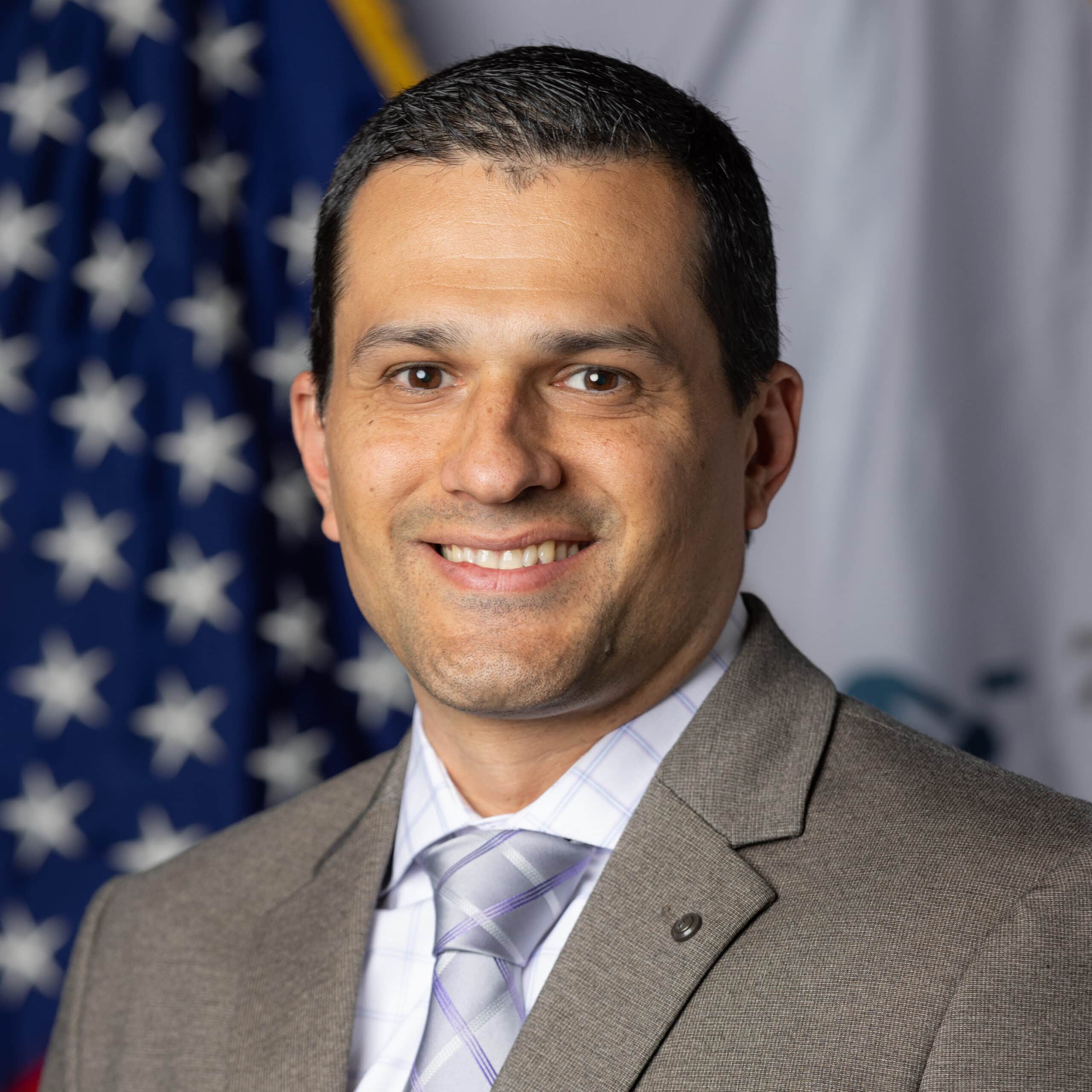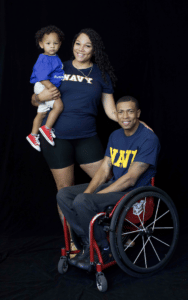Interview with Fabio Villarroel, Director of Sports and Recreation
Posted By PVA Admin on August 5, 2022
What kinds of programs does the Sports and Recreation team run? What is some current programming happening right now?
The Sports and Recreation team oversee a variety of different programs, which we offer both in person and online. Some in-person activities include trap and air gun shooting, bass fishing, handcycling, bowling, billiards and more. Our online programming include opportunities like virtual cycling, yoga and fitness and we also have a number of recreational, non-sports activities that include writing, painting and photography.
What is your role on the Sports and Recreation team?
I’m the director of the program, which means I am responsible for supervising and coordinating a team of six employees. They are in charge of delivering the variety of programs that I just spoke about. In my role, I get to oversee the implementation and the development of PVA’s sports and recreation programs, as well as their evaluation, promotion and delivery and management of the budgets.
The National Veterans Wheelchair Games, co-hosted by PVA and the Department of Veterans Affairs is taking place in Tempe, AZ from July 7-12. What does your team do to make the games happen, and why the Games are so important to paralyzed and disabled Veterans?
The National Veterans Wheelchair Games began in 1981, but PVA has been a part of organizing the Games since 1985. During the Games’ inaugural year, there were 72 participants that competed in 7 events. Fast forward 40 years later, there are nearly 600 athletes that attend the Games annually to compete in over 20 events. Obviously, this has been dialed back the past two years because of COVID, but we hope in the near future, we can see the number of athletes return to what we’ve been accustomed to.
As part of PVA’s role working with the Department of Veterans Affairs, we help organize and plan the event. This includes going to the event sites and evaluating event venues, lodging facilities, and airports to ensure they can accommodate our athletes. We are dealing with a large number of Veterans who use wheelchairs, and we want to make sure their experience is a positive one. In addition, we do a lot of cross collaboration with the VA representatives on event communication, registration, marketing, program evaluation, design and delivery.
The National Veterans Wheelchair Games are unique. They are the largest wheelchair sporting event in the country for Veterans. What makes them unique outside of that component is that it’s a rehabilitative program for many Veterans. For a Veteran that may have been recently injured, it’s a great opportunity for them to come out and get exposed to the power of adaptive sports. What I mean by that is that, when you talk to Veterans who have sustained these catastrophic injuries and they share their stories, a lot of them begin with Sports and Recreation and how Sports and Recreation got them to be active, to reengage with their peers and become a part of their community again. That’s what we want to promote with the National Veterans Wheelchair Games. When you look at the range of participants attending the Games, you have Veterans who have been living with their injury for a few months and some who have been living decades with their injuries, and that presents both groups with the opportunity to learn and gain different perspectives on how to deal with the unique aspects of their recovery. So there’s more to value than just the sports piece when it comes to the National Veterans Wheelchair Games. If you have the opportunity to attend, you see it’s almost a family atmosphere where you’re able to run into people every year and catch up on things that are important. It also provides a platform for people to advance their knowledge of adaptive sports and understand the needs of people with disabilities.
How do adaptive sports help paralyzed and disabled Veterans?
With adaptive sports, the main goal is to get people with disabilities active. Even outside of playing sports, just being active in general is good for your health. But for people living with spinal cord injury and disease (SCI/D), psychologically, you know, being able to again connect with people that have gone through the same things as you, whether you’re at the beginning of your injury or maybe you know a few years into your rehabilitative process, adaptive sports offer a unique opportunity to connect. For those that become elite athletes there are opportunities to represent your country in various sports at the Paralympics, play in professional leagues, or attend college on an athletic scholarship. Adaptive sports and recreation programs can also offer the opportunity to get out and engage with your family by doing activities together that are meaningful post injury. I think oftentimes, society likes to pre-define or pre-determine what individuals can accomplish. Adaptive Sports and Recreation allow people with disabilities to challenge biases about their limitations and their abilities.
Describe a moment where you saw the difference your team has made in the life of a paralyzed Veteran.
One of the things that I’m thankful for, and I talk to my team about is that we have an opportunity to get up every morning and make a difference for someone. There are instances post-injury that an individual may be in a dark place and may not want to re-engage with people the way they used to, or be active. Sports and Recreation programs can often be the first experience for an individual post injury that gets them to reengage with their community and be active. These experiences can have a greater impact that go beyond sports, where the individual is then empowered to do other things like pursue an education, find employment, advocate for disability rights, or start a conversation about family planning, which are essential services PVA makes available to its members. A lot of times, Sports and Recreation is that one piece that connects to everything else. I like to say Sports and Recreation makes an impact beyond the playing field and we get to see this every day. When we talk and engage with PVA members, they will tell us stories about how PVA’s sports and recreation programs have positively impacted their lives and encouraged them to live their lives to the fullest.
For example, about five or six years ago, I met an individual at the National Veterans Wheelchair Games. At that point, it had been about six months since he sustained his injury. He was shy and hung around with his family during the event, and you could tell it was an eye-opening experience for him. Over time, we got him to participate in PVA’s Adaptive Sports program. We got to see him grow as a person and be more independent. Early on, he was traveling with his family, but eventually he started attending these events on his own and he started engaging with people at these events and pursue other opportunities. In subsequent conversations with him, he has shared how meaningful these experiences were for him as part of his personal journey.
Where can members and other interested parties find more information about ongoing programming?
The easiest way to find information on upcoming programming is to go to our webpage. We also have our own Facebook page if you want to follow us there-Paralyzed Veterans of America Sports. There’s also Sports and Recreation content that is frequently posted on PVA’s social media accounts- Facebook, Twitter and Instagram.

